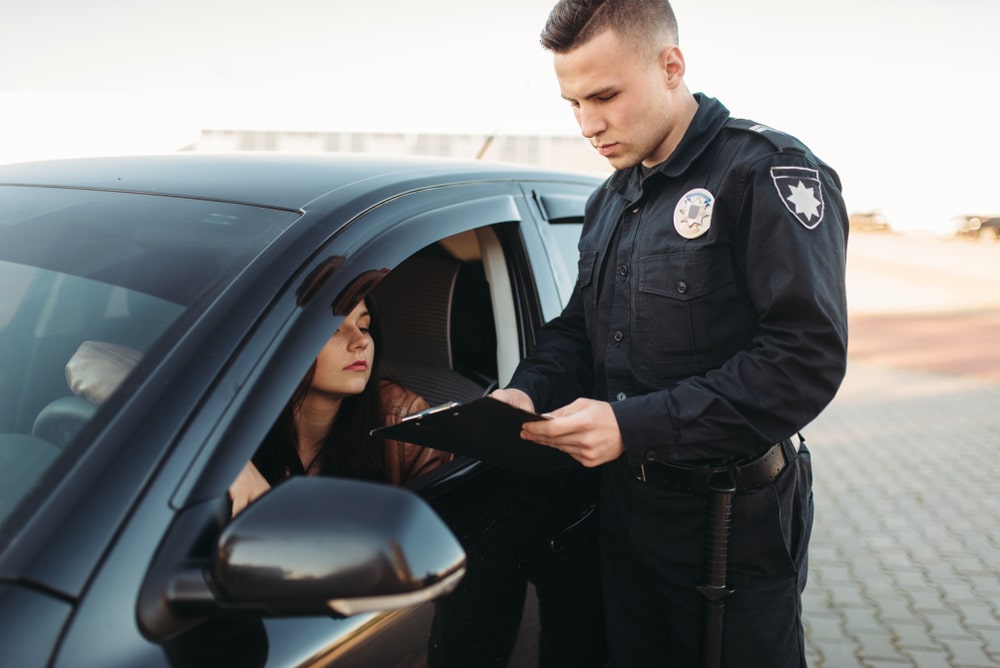Complete the form to schedule a free consultation with a traffic lawyer
Should I Plead Guilty or Not Guilty to a Traffic Violation? What to Consider First

Should I Plead Guilty or Not Guilty to a Traffic Violation in Court?
Should I plead guilty or not guilty to a traffic violation? It’s a critical decision that can affect your driving record, insurance rates, and legal standing. Whether you received a speeding ticket, ran a red light, or committed a more serious violation, knowing the consequences of your plea is essential before stepping into traffic court.
Key Impact: What Your Traffic Court Plea Means
When you receive a traffic ticket, the court gives you the option to plead guilty, not guilty, or no contest. Each choice comes with specific outcomes, and it’s important to understand what you’re agreeing to when you choose one.
What Happens If You Plead Guilty?
Pleading guilty means you admit to the violation. In most cases, this results in:
- Paying the ticket fine
- Accepting points on your license
- Possible increases in your insurance premiums
- Waiving your right to a trial
If you choose to plead guilty, you often handle the matter quickly but may face long-term effects. You should only plead guilty if you’re sure the ticket was valid and the consequences won’t impact your record severely.
What Happens If You Plead Not Guilty?
Pleading not guilty means you deny the charge and wish to contest it in court. This choice gives you the opportunity to:
- Present evidence or witnesses
- Request a reduction in charges
- Possibly have the case dismissed
If you’re asking, should I plead guilty or not guilty to a traffic violation, and you believe the charge is incorrect or the penalty is excessive, contesting it may be in your best interest. In some cases, hiring a traffic attorney can greatly improve your chances of success.
Decision Guide: Key Factors Before Entering Your Plea
Every traffic ticket is different, and so is every driver’s situation. Here are a few things to keep in mind when deciding how to plead:
Severity of the Violation
Minor infractions like rolling through a stop sign may not justify contesting if the fine and points are low. However, if the ticket is for reckless driving, a school zone offense, or excessive speeding, pleading not guilty may help protect your record.
Your Driving Record
If your record is clean, pleading guilty to a first-time minor violation may not have serious consequences. But if you already have points or prior violations, another conviction could lead to a license suspension or higher insurance rates.
The Evidence Against You
Ask yourself:
- Is there dashcam or GPS data that supports your case?
- Were there any errors on the ticket?
- Did the officer have a clear view of your actions?
If you can answer yes to any of these, pleading not guilty might be worthwhile.
Court Costs and Time
While pleading not guilty gives you a chance to fight the charge, it can require time off work and preparation for court. Weigh the value of the fine versus the time and effort needed to contest the charge.
For more on how the ticket process works, read how traffic court handles violations.
Weigh Your Options Carefully Before Pleading in Court
Should I plead guilty or not guilty to a traffic violation? It depends on your specific situation. If you’re confident that the charge was valid and you can afford the consequences, pleading guilty might make sense. But if the violation threatens your driving privileges, insurance, or job, contesting it could lead to a better outcome. Always evaluate your options before you respond to the court.
Get Help Deciding How to Plead to a Traffic Violation
Still unsure if you should plead guilty or not guilty to a traffic violation? Ticket Void helps drivers connect with qualified traffic attorneys who can guide you through your case, explain your options, and help reduce or dismiss your charges. Start your free consultation today and protect your record with confidence.
Frequently Asked Questions (FAQs)
1. Should I plead guilty or not guilty to a speeding ticket?
If the ticket is minor and you have a clean record, pleading guilty may be fine. If you believe it’s unjustified, contest it by pleading not guilty.
2. What happens if I ignore my ticket?
Ignoring a traffic ticket can lead to license suspension, added fines, and even a warrant. Always respond before the deadline.
3. Will a guilty plea increase my insurance?
Yes. Insurance companies often raise premiums after a traffic conviction, especially for speeding, reckless driving, or DUI.
4. Can a lawyer help if I plead not guilty?
Yes. An attorney can present evidence, negotiate for reduced penalties, or get your ticket dismissed.
5. Can I change my plea later?
In some courts, yes. But once a judgment is entered, it’s difficult. Decide carefully before entering a plea.
Key Takeaways
- Should I plead guilty or not guilty to a traffic violation? depends on the charge and your record.
- Pleading guilty is quick but adds points and fines.
- Pleading not guilty gives you a chance to fight the charge.
- Legal help can improve your chances of dismissal or reduction.
- Evaluate the risk to your record and insurance before deciding.
Recent Posts
-
How to Seek Reduced Traffic Violation Penalties: Understanding Available Options
-
How to Negotiate a Speeding Ticket in Court Successfully
-
How Do You Get a Ticket Off Your CDL? Expert Defense Strategies
-
What's the Best Excuse to Get Out of a Speeding Ticket? Expert Legal Defense Strategies
-
Is it Better to Just Pay a Ticket or Go to Court? Your Legal Options Explained
